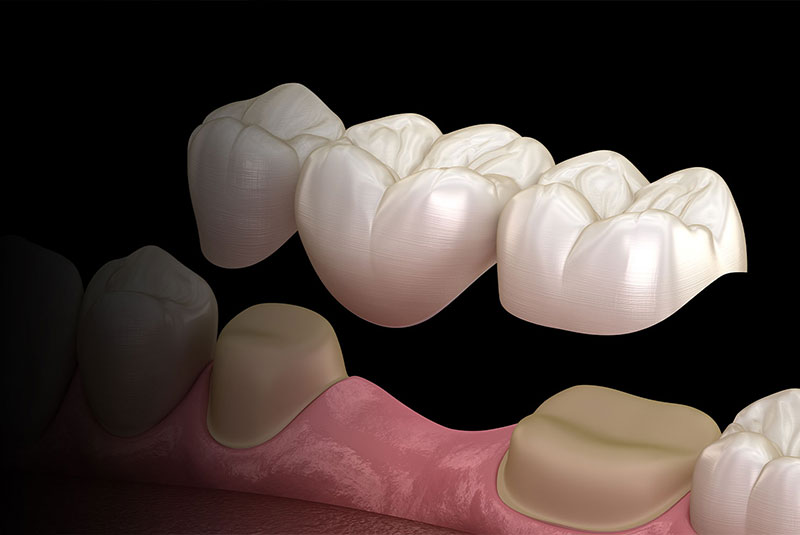Dental Crowns & Bridges - Covington, LA
Reinforce At-Risk Teeth

“I Never Had the Best Dental Provider Until I Met Dr. Lascari”

“I Never Had the Best Dental Provider Until I Met Dr. Lascari”
If you’re experiencing functional problems with your tooth, or you’ve lost one or had it extracted, it may be uncomfortable to complete everyday activities like eating or even speaking. Damaged or decayed teeth often cause sensitivity and pain. Chips or cracks can make even the most confident person feel self-conscious. When a tooth is damaged, that doesn’t mean it needs to be extracted. If the tooth’s roots and interior are still healthy then the tooth is worth saving. We just may need to give it a new exterior. If you’ve got chipped teeth, cracked teeth, or broken teeth, we can make your smile whole and fully functional again with dental bridges and dental crowns in Covington, LA.
At Cornerstone Dentistry our dentist and dental team are skilled in these restorative treatments and have the artistic eye to provide esthetically attractive outcomes, as well as returning function to your tooth. Your new restoration, made from porcelain or ceramic materials, will blend seamlessly with your existing teeth and be strong enough to bite and chew foods comfortably once again.
Dental crowns are fixed “caps” that cover over your teeth to restore strength and beauty. We generally recommend crowns when a tooth is too damaged or decayed to be treated with bonding or composite fillings. Similarly, we can use a dental crown to preserve a tooth after root canal therapy or to restore a permanent dental implant. We’ll take impressions of your tooth, which are used by a specialized dental lab technician to design your new restoration. Then, we’ll be sure your new dental crown fits securely over your tooth and the color blends in with your surrounding teeth. The advantages of dental crowns include:

If you’ve lost a tooth, but aren’t ready to commit to a dental implant, then a dental bridge is your next best option. Dental bridges are a series of dental crowns that span the gap left after a tooth is lost or extracted. To ensure a comfortable and seamless fit, we first take impressions of the area. These will be used by experienced technicians at our partner dental lab who will hand-craft your restoration. Your dental bridge will be made from high-quality materials and color-matched to look natural alongside your existing teeth. The benefits of dental bridges include:
We know when choosing a restorative dentist, one of your first questions is “Do you take my insurance?” The next is, “How much will this cost?” We offer competitive pricing for dental crowns and bridges in Covington, LA, and we do use financing, the unique cost of your dental crown or bridge will depend on a few factors including the number of teeth treated and the material you choose. We’ll break this down during a personalized consultation and can even discuss dental financing options for comfortable monthly payments. Don’t compromise your health for the sake of your budget. Receive custom crowns and bridges from our seasoned dental team in Covington, LA and restore your oral health, attractive look, and dental function!
